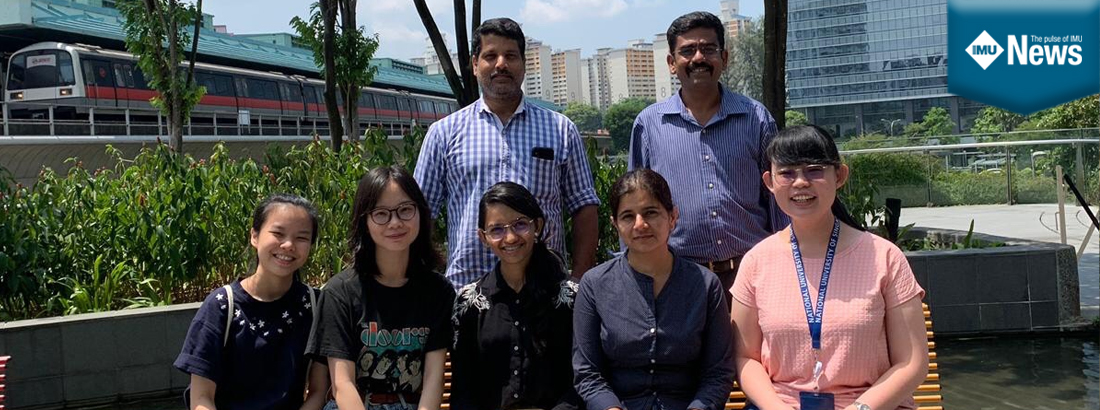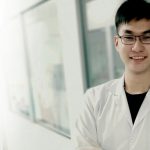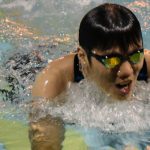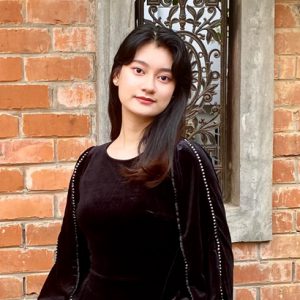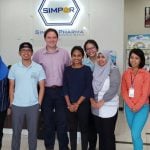As a final year Biomedical Science student at the International Medical University (IMU), I was given the opportunity to embark on an internship under the module ‘The Apprentice Phase I’ at the National University Singapore (NUS). It is a 9-week attachment where students were given a choice to a research-based or a diagnostic-based attachment locally in Malaysia or in other countries.
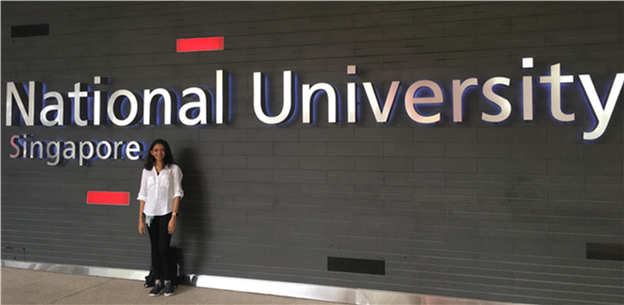
For my attachment, I was looking to be involved in research which is related to cell cultures and biochemistry involving pathways related research – working on mitochondria pathway had really kindled my curiosity. I am thankful that I was given the opportunity to undergo my research-based internship at the Department of Physiology, Yong Loo Ling, School of Medicine, National University of Singapore (NUS) under the supervision of Dr Mallilankaraman Karthik Babu who is a faculty and the principle investigator of Mitochondrial Physiology and Metabolism. During the attachment, I was really glad to work in well-equipped laboratory facilities, including high precision instrumentation. I was overwhelmed when I was trained to use it, then I got very much involved in it and realised that the working environment is the key factor to enhance the research output. 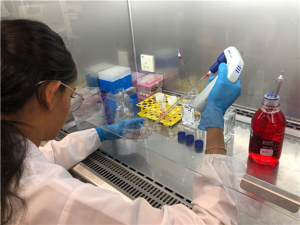 My objective throughout this internship is learn and work on an ongoing project involving the mitochondrial calcium homeostasis. There are several techniques that needed to be systematically performed initially by growing the cells in a specified medium under defined conditions, transfecting them with the gene of interest by a process of artificially introducing nucleic acids (DNA or RNA) into cells, by using lipids that are positively charged on their surfaced embedding the cargo inside to deliver the product into the cells and to study the effect of mitochondrial calcium uptake mechanisms. After the transfection, the cells normal protein expression is altered and the physiological impact of the protein of interest can be visualised by cell imaging in the presence of a fluorescent dye using confocal microscopy. Given the opportunity to work with other research assistants and post-doctoral fellows in the lab, I was glad to meet the lab members, who are my trainers in the laboratory and took great interest to patiently teach, guide and correct me while explaining experimental techniques, precautions and procedures involving cell culture, cell manipulation, fluorescent imaging, western blotting and advanced confocal microscopy. The skills and knowledge I have gained during this attachment will definitely be an added advantage when I venture into my future career. Besides technical skills and research knowledge, I have learned to work as a team and manage my time, since experimental research need not always fit into an ordinary 8 am till 5 pm schedule. There are situations where experiments need to be performed in intervals of 10-13 hours, that is where teamwork and time management comes into play, making me recollect the quotes of Henry Ford “Coming together is a beginning, staying together is progress, and working together is success”. Behind every successful research, there is great teamwork.
My objective throughout this internship is learn and work on an ongoing project involving the mitochondrial calcium homeostasis. There are several techniques that needed to be systematically performed initially by growing the cells in a specified medium under defined conditions, transfecting them with the gene of interest by a process of artificially introducing nucleic acids (DNA or RNA) into cells, by using lipids that are positively charged on their surfaced embedding the cargo inside to deliver the product into the cells and to study the effect of mitochondrial calcium uptake mechanisms. After the transfection, the cells normal protein expression is altered and the physiological impact of the protein of interest can be visualised by cell imaging in the presence of a fluorescent dye using confocal microscopy. Given the opportunity to work with other research assistants and post-doctoral fellows in the lab, I was glad to meet the lab members, who are my trainers in the laboratory and took great interest to patiently teach, guide and correct me while explaining experimental techniques, precautions and procedures involving cell culture, cell manipulation, fluorescent imaging, western blotting and advanced confocal microscopy. The skills and knowledge I have gained during this attachment will definitely be an added advantage when I venture into my future career. Besides technical skills and research knowledge, I have learned to work as a team and manage my time, since experimental research need not always fit into an ordinary 8 am till 5 pm schedule. There are situations where experiments need to be performed in intervals of 10-13 hours, that is where teamwork and time management comes into play, making me recollect the quotes of Henry Ford “Coming together is a beginning, staying together is progress, and working together is success”. Behind every successful research, there is great teamwork.
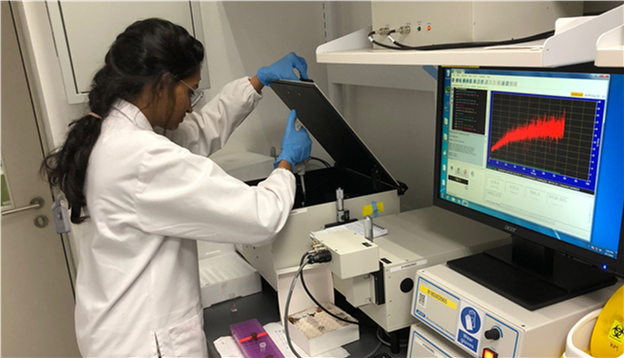
I also used this opportunity to explore Singapore by visiting their tourist hotspots like Universal Studio, SEA Aquarium, Pahlawan Beach, Marina South Pie, the Museums and much more. Not forgetting their local foods – Bah Kut Teh, Wantan Mee, Chicken Rice and street snacks is all that feasted my gastronomical excitement. 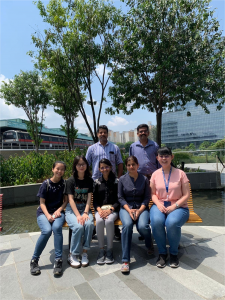 In a nut shell this is a useful and meaningful experience that I can relate to in the future, as the curriculum in the IMU Biomedical Science programme provided me with the basic knowledge while this internship definitely supplemented it with the additional increments of skills shaping me to be a better person to face future challenges. The attachment has also made me a more independent and has also built up my confidence level. I would like to take this space to thank my mentor Dr Amalraj Fabian Davamani, who has been a constant support and introduced me to this internship at NUS. Not forgetting Dr Lim Chooi Ling who is the module coordinator for this apprenticeship programme and all other Biomedical lecturers who have imparted their knowledge and experience to shape me to become a successful and prospective graduate. Written and photos by Meshalanirani a/p Mareshvaran (BM1/16)
In a nut shell this is a useful and meaningful experience that I can relate to in the future, as the curriculum in the IMU Biomedical Science programme provided me with the basic knowledge while this internship definitely supplemented it with the additional increments of skills shaping me to be a better person to face future challenges. The attachment has also made me a more independent and has also built up my confidence level. I would like to take this space to thank my mentor Dr Amalraj Fabian Davamani, who has been a constant support and introduced me to this internship at NUS. Not forgetting Dr Lim Chooi Ling who is the module coordinator for this apprenticeship programme and all other Biomedical lecturers who have imparted their knowledge and experience to shape me to become a successful and prospective graduate. Written and photos by Meshalanirani a/p Mareshvaran (BM1/16)




